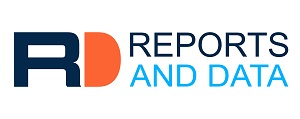Global Temperature Monitoring Devices Market to Reach USD 3.8 Billion by 2034

Reports And Data
Rising demand in healthcare and industrial applications drives steady growth
VANCOUVER, BRITISH COLUMBIA, CANADA, September 10, 2025 /EINPresswire.com/ -- The global temperature monitoring devices market is projected to grow from USD 2.0 billion in 2024 to USD 3.8 billion by 2034, expanding at a compound annual growth rate (CAGR) of 6.50%. This growth is fueled by strong demand in healthcare, industrial automation, and food safety, along with rapid advancements in connected technologies such as the Internet of Things (IoT) and artificial intelligence (AI).Healthcare is expected to remain the largest application segment due to the rising need for patient monitoring and strict regulatory requirements for temperature control in pharmaceuticals. At the same time, the industrial sector is forecasted to record the fastest growth, driven by the increasing need for precise temperature management in manufacturing and energy systems.
You can Download Free Sample PDF Copy Of This Report At: https://www.reportsanddata.com/download-free-sample/11119
North America is set to maintain its leadership position in the global market, supported by advanced healthcare infrastructure, high adoption of smart technologies, and strong regulatory oversight. Meanwhile, the Asia Pacific region is expected to be the fastest-growing market, boosted by rapid industrialization, expansion of manufacturing facilities, and government initiatives supporting smart infrastructure.
The market outlook is strongly influenced by technological progress and regulatory compliance. Integration of IoT and AI in monitoring devices is making real-time data collection and predictive analytics more efficient. According to McKinsey, IoT adoption in industrial applications is growing at 15% annually, directly increasing the use of temperature monitoring devices. Regulatory bodies are also playing a key role. The U.S. Food and Drug Administration (FDA) has enforced stricter guidelines for temperature control in pharmaceuticals, leading to a 20% rise in device demand from the healthcare sector. In addition, public policy initiatives such as the European Union’s Green Deal and the U.S. Department of Energy’s USD 1.5 billion allocation for smart grid infrastructure are further encouraging the adoption of energy-efficient monitoring technologies.
Recent product launches underline this trend. Honeywell International Inc., for example, introduced a new line of wireless temperature sensors in March 2024, designed to improve energy efficiency and lower operational costs. Such innovations are expected to capture significant market share as industries increasingly move toward wireless and sustainable solutions.
Temperature Monitoring Devices Market Segmentation
By Product Type
Contact Temperature Monitoring Devices
Non-contact Temperature Monitoring Devices
By Application
Healthcare
Industrial
Food Safety
Environmental Monitoring
By End User
Hospitals and Clinics
Manufacturing Industries
Food and Beverage Companies
Research Laboratories
By Technology
Infrared
Thermocouples
Resistance Temperature Detectors (RTDs)
Thermistors
By Distribution Channel
Direct Sales
Distributors
Online Retail
Get a Customized Report: https://www.reportsanddata.com/request-customization-form/11119
Despite strong growth prospects, the industry faces challenges. High costs of advanced systems, complex regulatory requirements, and a shortage of skilled professionals remain hurdles for widespread adoption. A Deloitte survey found that 45% of small and medium-sized enterprises see cost as a key barrier. Moreover, compliance with international standards and data privacy rules such as Europe’s General Data Protection Regulation (GDPR) adds complexity and expense for businesses. The lack of system interoperability and integration also continues to impact operational efficiency across industries.
The market can be divided into several categories. By product type, it includes contact and non-contact devices. By technology, infrared, thermocouples, resistance temperature detectors (RTDs), and thermistors dominate. Applications span healthcare, industrial use, food safety, and environmental monitoring, with key end users being hospitals, manufacturing industries, food and beverage companies, and research laboratories. Distribution is mainly through direct sales, distributors, and online channels.
Looking ahead, key drivers for growth include the 20% annual rise in demand for remote patient monitoring systems, a 30% increase in the use of AI for predictive maintenance, and a 25% rise in demand for wireless sensors, as highlighted by the International Energy Agency (IEA). With regulatory reforms, public investment, and continuous technological innovation, the temperature monitoring devices market is well positioned for strong expansion in the coming decade.
Top 10 Companies
Honeywell International Inc.
Emerson Electric Co.
Siemens AG
General Electric Company
Schneider Electric SE
ABB Ltd.
Panasonic Corporation
Yokogawa Electric Corporation
Omron Corporation
Fluke Corporation
John W
Reports and Data
+1 2127101370
sales@reportsanddata.com
Legal Disclaimer:
EIN Presswire provides this news content "as is" without warranty of any kind. We do not accept any responsibility or liability for the accuracy, content, images, videos, licenses, completeness, legality, or reliability of the information contained in this article. If you have any complaints or copyright issues related to this article, kindly contact the author above.
